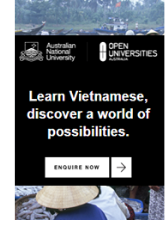Taiwan’s timely containment measures allowed it to keep COVID-19 in check, and its response to the virus could present the government with important opportunities abroad, Huynh Tam Sang writes.
Despite Taiwan’s early successes tackling the spread of COVID-19, concerns are arising as to how the government is able to navigate its New Southbound Policy (NSP). The NSP is an initiative that aims to enhance cooperation and exchange through this unprecedented time between Taiwan and 18 countries in Southeast Asia, South Asia and Australasia.
Significant challenges posed by the pandemic, such as the limited flow of capital, the emergence of ‘protectionist’ measures, and restrained movement of people are causing almost every country on earth policy trouble. The NSP, which gained new leverage with incumbent Taiwanese President Tsai Ing-wen’s landslide victory in January’s election, is now being put to the test.
Given the pandemic and Taiwan’s economic over-reliance on China, the recalibration of the NSP to diversify Taiwan’s export markets seems to be a must. Indeed, restrictions on the flow of Chinese capital to Taiwan, notably with specific regulations on the origins of Chinese sources of funds, have been floated by some as ways to protect Taiwan’s economic interests.
This need to diversify made Southeast Asia a natural choice for the government, but the pandemic has been an obstacle. The decline of Taiwanese product exports, caused by a boom in the stay-at-home economy, and a lack of preferential trade agreements between Taiwan and ASEAN nations, has hampered Taiwan’s integration with Southeast Asia.
A major part of Taiwan’s diplomatic appeal is tied to its successes in dealing with the pandemic. Taiwan’s containment of the coronavirus offers it the opportunity to export a new version of the NSP that positions Taiwan as a safe environment for global investors. This can attract investment opportunities from companies who realise the necessity of protecting their production capacity by having it stationed in countries with low COVID-19 risks.
Throughout the crisis, Taiwan built its reputation as a benign global stakeholder by shipping personal protective equipment and providing medical assistance to the United States, diplomatic allies, Europe, and countries listed in its NSP. But Taiwan should go beyond lending a helping hand in this way.
Taiwan should build a concrete scheme to export the Taiwan model for combating COVID-19, focusing on the reciprocal implementation of its democratic model and the transparency with which Taiwan has earned its striking outcomes in fighting the pandemic.
It is imperative to establish new dialogue platforms for Taiwanese corporations and other organisations to discuss the advancement of its medical links with partners in the Indo-Pacific.
Taiwanese experts, who are at the forefront of combating COVID-19, could play the role of medical ambassadors in helping New Southbound countries with their battle against the pandemic.
Additionally, Taiwanese manufacturers should participate in this decisive moment and support the government by sharing their experience of responding quickly and flexibly to COVID-19 outbreaks.
A proactive approach and world-class health system – the cornerstones of Taiwan’s much-praised success in handling COVID-19 – could help Taiwan’s like-minded partners steer their medical modernisation in time of crisis.
The United States’ Indo-Pacific Strategy Report, published in June 2019, confirmed stronger ties between America and Taiwan by making a reference to Taiwan as a country, and praising Taiwan as a reliable, capable, and natural partner.
As the American commitment to Taiwan is ‘stronger than ever’, the United States – with its current credibility as a global leader in the Indo-Pacific strategic platform – could benefit from Taiwanese integration with its southern neighbors, and its alliance network should be the place Taiwan looks for opportunities.
The relationship between the United States and the Southeast Asian nations, Australia, New Zealand, and India, has been propelled forward by shared concerns of a more assertive China. ASEAN countries on 26 June released a Vision Statement underlining the need for China to abide international law, and to ‘work actively towards the full and effective implementation’ of the 2002 Declaration of Conduct of Parties in the South China Sea.
On top of this, American ties with Australia and New Zealand have been consolidated by the Five Eyes intelligence-sharing arrangement, and India is engaging more closely with the United States via the Quad. Given the ‘broad, deep, and growing’ relationship between these countries, now would an opportune time for Taiwan to build its relations further with them.
Forging relations with the United States and its partners could serve the dual purpose of gaining new incentives for the NSP, a policy that is of vital importance for the Tsai government amid the pandemic, and consolidating Taiwan’s economic and military ties with like-minded democratic middle powers.
G iven Taiwan’s effective response to COVID-19 and its compassionate medical assistance to many countries, the United States, Australia, and New Zealand have shown strong support for its participation in the World Health Assembly. In July, India’s appointment of a senior diplomat to Taiwan as India-China relations turned sour means the interaction between India and Taiwan ‘has gone to a higher level.’
iven Taiwan’s effective response to COVID-19 and its compassionate medical assistance to many countries, the United States, Australia, and New Zealand have shown strong support for its participation in the World Health Assembly. In July, India’s appointment of a senior diplomat to Taiwan as India-China relations turned sour means the interaction between India and Taiwan ‘has gone to a higher level.’
Taiwan should seize this moment to foster its relationships with the middle powers who have stood firm in their diplomatic support for the island. Its legitimacy to these countries as a democracy and a reliable partner, both economically and in fighting the spread of COVID-19, give it an unmissable chance to make the most of its New Southbound Policy, even during a global pandemic.





 How the digital age changed Taiwan
How the digital age changed Taiwan
 Data privacy and democracy in a pandemic
Data privacy and democracy in a pandemic